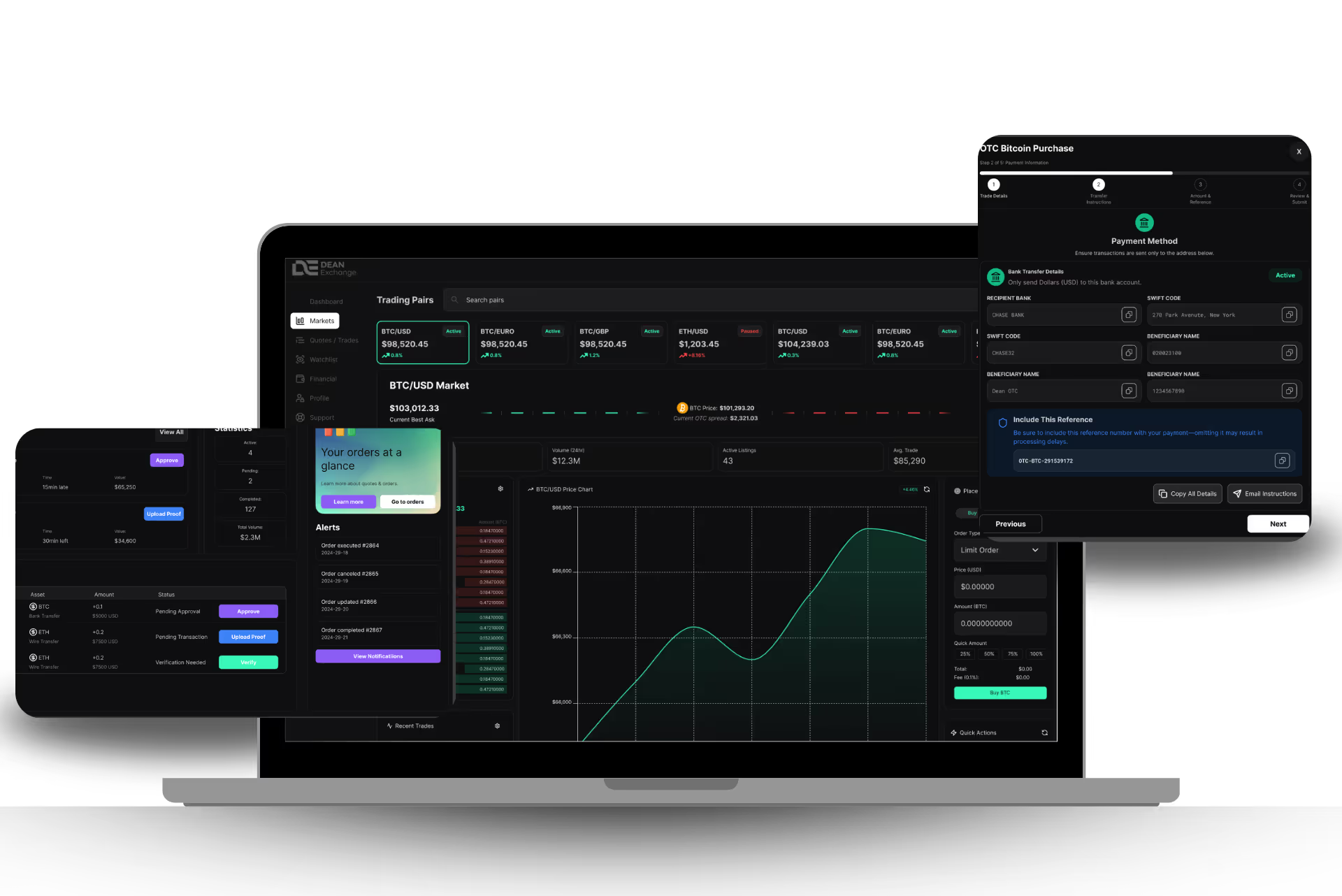By the
This is some text inside of a div block.
This is some text inside of a div block.
•
5
min read
%20and%20How%20Does%20It%20Work.jpg)
As the cryptocurrency space continues to evolve, Decentralized Finance (DeFi) is quickly becoming one of the most transformative concepts within the blockchain ecosystem. From enabling peer-to-peer lending and borrowing to reshaping how people trade assets, DeFi is changing the way we think about financial services. But what exactly is DeFi, how does it work, and why is it generating so much buzz across the cryptocurrency exchange landscape?
Let’s break it down in clear terms and explore how you can begin to understand, engage with, and benefit from this powerful movement in finance.
Decentralized Finance refers to a system of financial applications built on blockchain technology that operate without traditional banks or centralized intermediaries. Instead of relying on institutions to manage funds or verify transactions, DeFi protocols use smart contracts—self-executing agreements written in code—to facilitate trustless financial operations.
At its core, DeFi is about giving people full control over their money through permissionless and open-access platforms, often powered by public blockchains like Ethereum.
📌 Key takeaway: DeFi lets you access banking-like services—loans, savings, trading—without a bank.
DeFi systems are typically built on programmable blockchains such as Ethereum. These blockchains support smart contracts, which allow developers to create complex decentralized applications (dApps) that can automatically execute financial actions based on pre-set conditions.
For example, a lending protocol like Aave or Compound lets users deposit cryptocurrency into a smart contract, which then allows others to borrow those funds after meeting certain requirements (like providing collateral).
This removes the need for manual approval processes, credit checks, or third-party institutions.
These applications are interconnected, creating what is often referred to as “DeFi Legos”—modular pieces that users can stack together to create personalized financial strategies.
Traditional finance has long been gatekept by geographic, regulatory, and infrastructural barriers. DeFi opens the door to anyone with internet access and a crypto wallet. There's no paperwork, no need for a bank account, and no centralized authority to deny access.
For individuals in underserved regions or those looking for alternative investing opportunities, DeFi can provide a viable solution.
Thanks to blockchain’s immutable and transparent nature, every transaction is traceable. Users can verify how DeFi platforms operate and audit smart contracts before using them. This empowers participants with unparalleled control and visibility over their assets.
Ethereum’s early mover advantage, developer ecosystem, and support for smart contracts made it the go-to chain for DeFi innovation. Most major DeFi platforms are Ethereum-based, and Ethereum news often reflects the latest breakthroughs or issues facing DeFi.
However, high gas fees and scalability issues have opened the door for competitors like:
Each offers unique trade-offs in speed, decentralization, and costs. This cross-chain expansion is now a key focus in crypto market analysis.
While DeFi offers opportunity, it’s not without risk. Smart contracts can have bugs or vulnerabilities that hackers exploit. Additionally, the cryptocurrency market is known for volatility, meaning sudden price drops can trigger mass liquidations in lending protocols.
Not every DeFi project is legitimate. Some developers create fake tokens or schemes, then disappear with user funds—a scam known as a “rug pull.” It’s critical to do thorough research and rely on trusted platforms with strong communities and transparent codebases.
Getting involved in DeFi can be surprisingly simple. Here’s a basic walkthrough:
🧠 Pro Tip: Never invest more than you can afford to lose, especially while you're learning.
Emerging trends suggest DeFi will become increasingly multi-chain, offering users seamless interoperability between platforms and networks. Layer 2 solutions (like Arbitrum and Optimism) are reducing fees and improving transaction speeds, making DeFi more practical for everyday use.
Regulation will also play a critical role. As governments begin to establish clearer rules around DeFi, legitimate projects will thrive while scams are weeded out.
At Dean Exchange, we believe that knowledge is power—especially in fast-moving fields like DeFi. Our platform is designed to make complex blockchain topics approachable with expert-backed content, real-time Ethereum news, and actionable crypto market analysis. Whether you're a newcomer looking for cryptocurrency tutorials or a seasoned trader interested in the next big trend, we provide the insights you need to succeed in the decentralized economy.
DeFi isn’t just a buzzword—it’s a powerful shift in financial infrastructure. And with the right tools and education, you can be part of the future of finance.


Join our newsletter for exclusive insights, breaking crypto trends, and learning opportunities—delivered straight to your inbox.